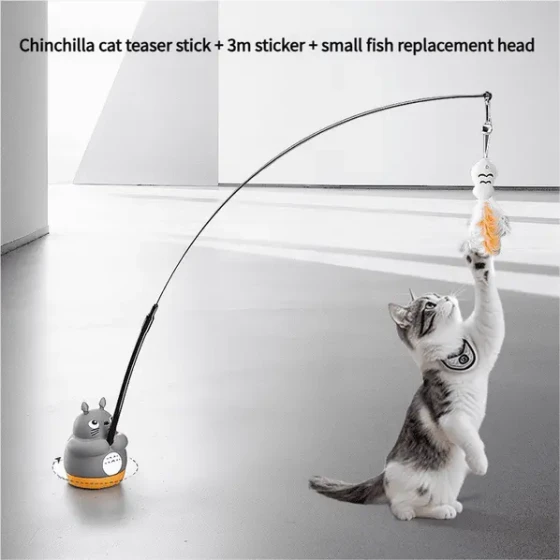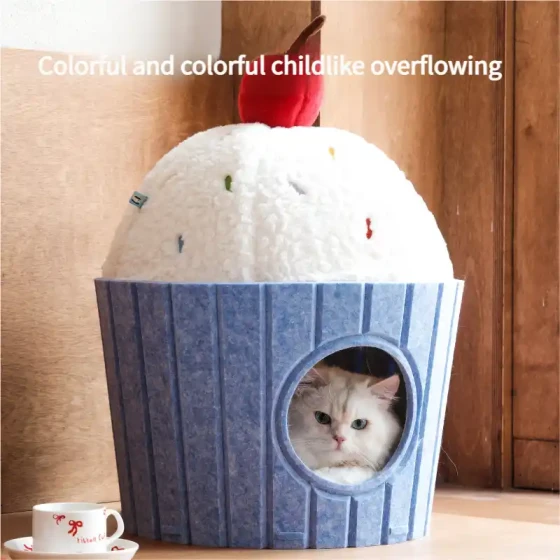What Medicine to Give Cats for Fever_Correct Medication Guide
Cat has a fever? This sounds like a heart-wrenching problem, especially when your little furball looks lethargic, and that helpless feeling instantly rises in your heart. You might instinctively think that humans take some medicine when they have a fever, so cats must be the same? However, before rushing to the medicine cabinet, be sure to keep your hand hovering in mid-air and remember the most important sentence: Cats are not miniature humans; their metabolism is completely different from ours. Never give cats any human medicine without veterinary guidance! When you find your cat unwell, especially if you suspect a fever, the most correct and responsible action is to immediately contact and visit a veterinarian. There is no room for compromise on this.

Why are human fever reducers "poison" to cats?
This is by no means alarmism. Many common over-the-counter medicines for humans, such as those containing paracetamol (also called acetaminophen) or non-steroidal anti-inflammatory drugs (NSAIDs, like ibuprofen, aspirin) found in cold or pain medicines, are lethal to cats.
Cats’ livers lack a crucial enzyme (glucuronyl transferase), which in humans is responsible for breaking down and metabolizing many drugs. Without this enzyme, the drugs and their metabolites accumulate in the cat’s body, causing severe poisoning.
- Paracetamol poisoning: This is one of the most common and dangerous poisonings. Cats taking paracetamol suffer catastrophic consequences, leading to red blood cell damage (methemoglobinemia, causing the cat’s blood to turn chocolate-colored, cyanotic mucous membranes of lips, tongue, etc., and difficulty breathing), liver damage, and even acute liver failure. Symptoms usually appear within a few hours of ingestion and progress rapidly, with a very high fatality rate.
- NSAIDs poisoning: Drugs like ibuprofen and aspirin are widely used among humans but are highly toxic to cats’ kidneys and gastrointestinal tract. They inhibit prostaglandin synthesis, reducing renal blood flow and causing kidney failure while damaging the gastrointestinal mucosa, leading to ulcers and even perforation. Even “baby doses” of aspirin can cause irreversible harm to cats.
So, when you see questions like "What medicine to give cats for fever?" your inner alarm should ring loudly: the answer is absolutely NOT to buy a box of human cold medicine from the pharmacy.
How to tell if a cat really has a fever?
Fever (professionally called elevated body temperature or hyperthermia) is usually the body’s response to infection, inflammation, or other diseases. Cats have a normal temperature range slightly higher than humans, about 38.0°C to 39.5°C. Judging if a cat has a fever by merely touching their nose or ears is unreliable, as many factors (like just waking up, sun exposure, stress) affect surface temperature.
A more accurate method is measuring rectal temperature, but this is obviously not recommended for ordinary cat owners at home, as it can easily stress or injure the cat and requires professional thermometers and skills.
A more practical approach is to observe the cat’s behavior and accompanying symptoms:
- Depressed spirit, inactivity
- Lack of appetite or complete refusal to eat or drink
- Hiding, unwilling to interact
- May show pain or discomfort when touched
- Sometimes accompanied by other symptoms like vomiting, diarrhea, rapid breathing, coughing, lameness, etc.
It should be emphasized that these symptoms are not unique to fever; many diseases cause similar signs. This is why professional diagnosis by a veterinarian is needed.
How do veterinarians treat cat fever?
When you take your cat to the vet, they will conduct detailed inquiries (understanding history, living habits, timing of symptoms appearance) and a thorough physical exam, usually including temperature measurement.
If elevated temperature is confirmed, the vet’s primary task is not simply to "reduce fever" but to find the underlying cause. Fever is just the tip of the iceberg, possibly hiding:
- Infections: bacterial infections (like cystitis, respiratory infections, abdominal infections), viral infections (like feline panleukopenia, feline respiratory viruses, feline infectious peritonitis FIP, etc.), fungal infections, parasitic infections, etc.
- Inflammation: such as pancreatitis, enteritis, arthritis, etc.
- Immune-mediated diseases: the body’s immune system attacking its own tissues.
- Tumors: certain types of cancers.
- Other causes: such as heatstroke (extremely high body temperature but different mechanism from infectious fever), stress-induced hyperthermia, etc.
The veterinarian may recommend further tests, such as:
- Blood tests: Complete blood count (checking white cells, red cells, etc., to determine infection or inflammation), biochemical assays (evaluating liver and kidney function, electrolytes, etc.).
- Urine tests: to rule out urinary tract infection.
- Imaging exams: X-rays, ultrasound, etc., to check for abnormalities in internal organs.
- Specific disease testing: such as FIV/FeLV tests, FIP testing, etc.
After diagnosis, the vet will develop a treatment plan based on the cause. Treatment may include:
- Cause-specific drugs: antibiotics for bacterial infections; veterinary-specific anti-inflammatory drugs safe for cats (usually not human NSAIDs but drugs strictly selected for dose and type, with side effects monitored); immunosuppressants for immune-mediated diseases, etc.
- Fever reducers: only prescribed by vets when necessary and safe drug types and doses for cats are clear. These drugs are designed specifically for animals or, in rare cases, controlled doses of human drugs. Never give human fever-reducing medications casually.
- Supportive therapies: fluids if the cat is dehydrated; nutritional support or appetite stimulants if appetite is poor; pain relief if painful.
Correct Medication Guide: Always Follow Veterinarian Instructions
Therefore, the correct answer to "What medicine to give cats for fever?" is: give the medicines prescribed by the vet after diagnosis. As a pet owner, your duties are:
- Careful observation: Pay attention to daily behavior, appetite, and mental state changes.
- Timely medical visit: Once fever or other discomfort symptoms are noticed, immediately contact a vet and schedule a visit without delay.
- Provide information: Describe in detail the cat’s symptoms, duration, recent lifestyle changes (such as vaccinations, deworming, food changes, contact with other animals, etc.) to the vet.
- Follow prescription: Administer medication strictly according to the vet’s instructions, on time and in the right dose; do not adjust doses or stop medications by yourself. If abnormal reactions occur during medication, contact the vet immediately.
- Provide good care: Create a quiet and comfortable environment at home, ensure clean water supply (although sick cats may refuse to drink), and provide food according to the vet’s recommendations.
Remember, cats cannot talk; their discomfort needs us to observe and judge, but, more importantly, requires professional veterinary diagnosis and treatment. Self-medicating is a dangerous gamble that may cost your cat’s life.
Raising a life, especially a partner like a cat with unique physiology, is a journey of continual learning and responsibility. Understanding a cat’s physiological traits and respecting professional medical advice is basic literacy for every qualified "pet owner." So, when your cat has a fever, please put down the human medicines, pick up the phone, and contact your vet. This is the only "prescription" that truly can help your beloved cat.





